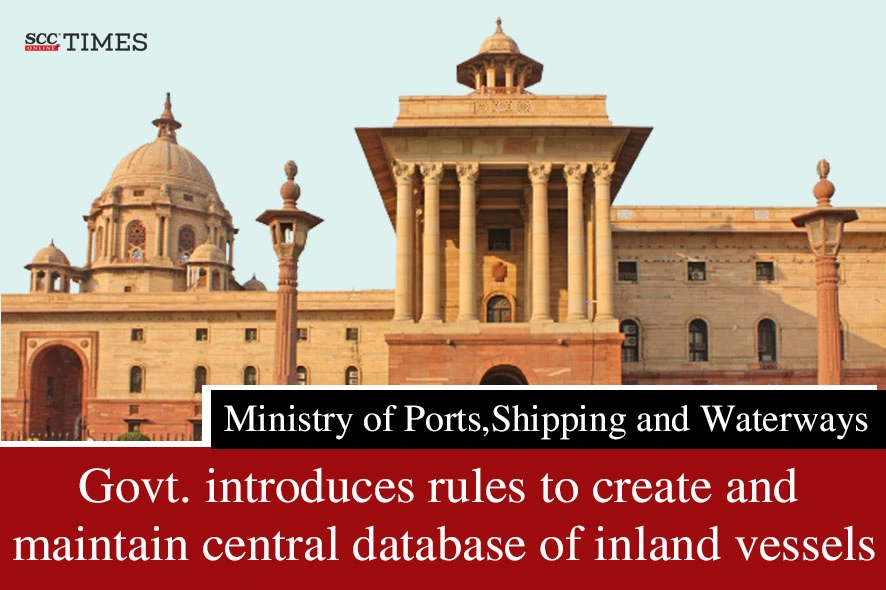On 29-10-2024, the Ministry of Ports, Shipping and Waterways notifies the Inland Vessels (Central Database and Allied Matters) Rules, 2024 to establish a comprehensive framework for regulation and management of inland vessels. The provisions came into force on 29-10-2024.
Key Points:
-
The Central database will contain the following data and details in electronic from:
-
application for conducting survey of vessel;
-
declaration to be issued by the surveyor;
-
record of equipment and vessel information;
-
application for provisional certificate of survey;
-
provisional certificate of survey;
-
survey certificate of category A, B and C vessel;
-
particulars to be furnished for survey of new vessel;
-
official logbook for an inland mechanically propelled vessel;
-
application for change of name of the vessel on certificate of survey;
-
Book of registration of vessels and application for registration, declaration of ownership, appointment of date and time of inspection of the inland vessel by the registering authority;
-
carving and marking note, application regarding registration, application for transfer of registry, instrument creating, transfer or discharge of mortgage, application for issuance of provisional certificate of registration;
-
certificates of competency issued to crew, medical certificate for appearing for certificate of competency, certificate of service, application form;
-
certificate of compliance for prevention and containment of pollution;
-
data and details of reception facilities.
-
-
Duties of nodal officer:
-
Monitor/ administer/ maintain central database;
-
Ensure that the information is duly recorded and available in the web portal;
-
Collect data and details from the designated authorities;
-
Report of performance and data received from designated authorities will be provided by the nodal officer to the competent authority;
-
Can appoint officers/ persons who are experts in the field of information technology/ data handling and protection/ software and hardware development;
-
Provide training to the officers appointed;
-
ensure the integrity, security, standards and quality of data;
-
ensure scalability and performance optimization;
-
make sufficient mechanisms for backup and recovery;
-
maintain documentation and metadata.
-
-
Nodal Officer will have to ensure that the following Standards and Procedures for maintaining central database are implemented:
-
managing the database properly;
-
identification of individuals or teams responsible for data quality, integrity, and security;
-
defining processes for data creation, storage, retrieval, and archiving or deletion;
-
defining roles such as admin, user, guest and specify access rights for each role;
-
implementation of secure login mechanisms and determine who can access what data;
-
ensure logging of all database activities for traceability and accountability;
-
defining retention policies for backup data to ensure compliance and optimize storage usage;
-
providing source of information or data that has been recorded, maintained and available for verification by authorities concerned;
-
providing user manual, restrictions, procedures and terms and conditions of accessibility to administration or third-party access;
-
providing privacy policies, liabilities and copy rights;
-
scheduling routine maintenance tasks such as database optimization, patch management, and software updates;
-
-
The designated authority will be responsible for providing the data and details to the nodal officer in electronic format at a regular interval not exceeding 30 days.






